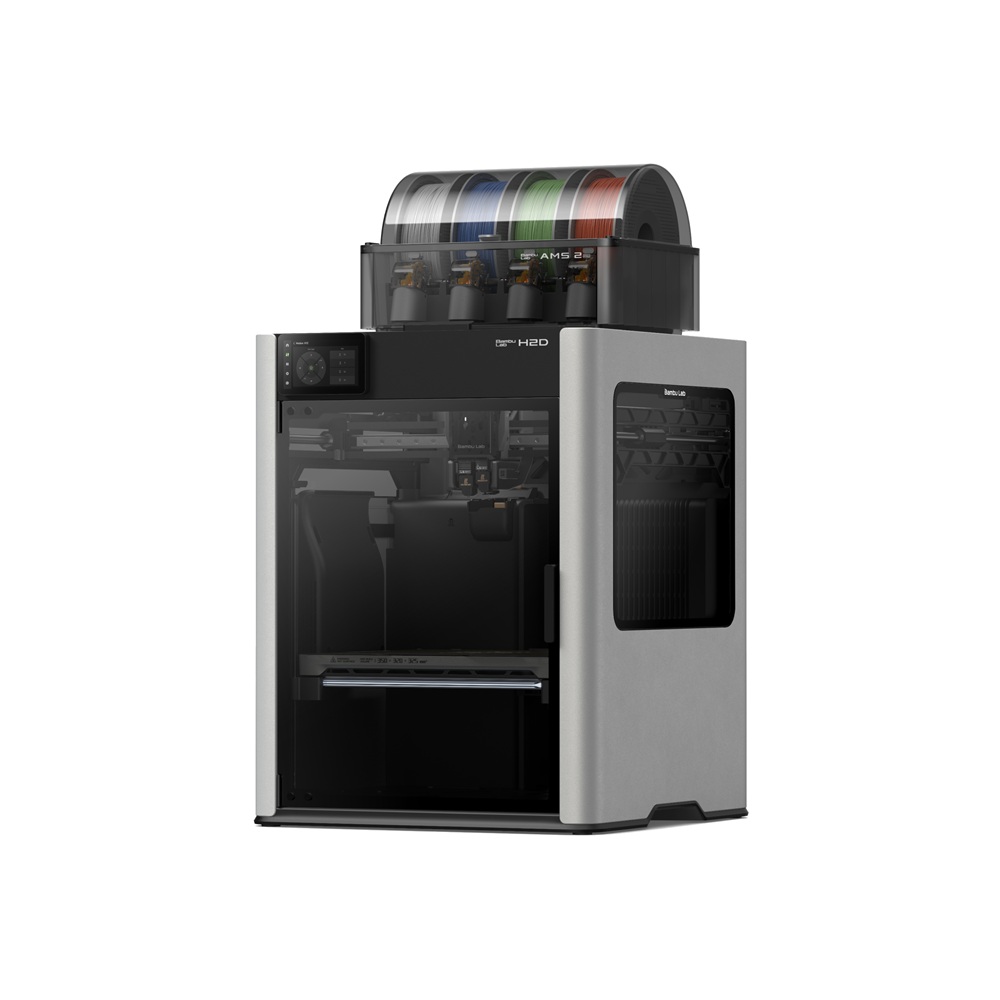Compare Mars 5 vs H2D
Comparison between the best 3D printers
Choose the best 3D printer at the best price. The cheapest 3D printers are here.
Buy a 3D printer here with 3D Fila.
 |
 |
|
| Model | Mars 5[BUY Mars 5] |
H2D |
| Printing Material | Resin | Filament |
| Buy Resin for Elegoo Mars 5 | Buy Filament forBambu Lab H2D | |
| Estimated price | $199,00 | $1899,00 |
| Manufacturer | Elegoo | Bambu Lab |
| Release Year | 2024 | 2025 |
| Print Volume [mm] | 143x89x150 | 350x320x325 |
| Printer Size [mm] | 230x230x433 | 492x514x626 |
| Weight [kg] | 6,6 | 42,3 |
| Power Loss Recovery | NO | YES |
| Maximum Resolution [mm] | 0,01 | 0,01 |
| Processor | ||
| Display | Touchscreen 3,5'' | Touchscreen 5'' |
| Power Supply | ||
| Connectivity | USB | Wifi, Bambu bus, Cartão SD |
| Operating systems | Windows, Max, Linux | Windows, Mac, Linux |
| Date of registration in the system | 2025-04-23 | 2025-03-31 |
| Release date | 2024 | 2025 |
| Extra features | Elegoo Mars 5 features a 6.6 4K monochrome LCD screen and 35um XY resolution, with auto-leveling and system check at startup. It includes smart sensors to alert for leveling failure, resin shortage, and residue detection. Using MSLA technology with a 405 nm COB light source, it also offers a 3.5 touch screen and supports various resins, including washable, ABS-like, and plant-based types. | Bambu Labs H2D combines high-speed 3D printing with a chamber heated up to 65 °C, dual extrusion with automatic nozzle switching, an AMS for filament drying and exchange, and AI sensors that detect failures. It offers optional laser and digital cutting capabilities, features intelligent calibration through computer vision, vibration control, enhanced fire safety, and real-time camera monitoring. |
| Support for multiple colors and materials (AMS and CFS) | NO | YES |
Notes * |
||
| Cost-benefit | 8 / 10 | 7 / 10 |
| Hardware | 1.6 / 10 | 7.2 / 10 |
| Tela | . | . |
| Print volume | 3 / 10 | 4 / 10 |
| Performance | 9 / 10 | 5 / 10 |
| [BUY Mars 5] |
Conclusion |
| In comparing the Elegoo Mars 5 and the Bambu Lab H2D 3D printers, several key factors come into play that differentiate these two devices, catering to different user needs and budgets. The Elegoo Mars 5 stands out as a highly affordable resin printer, ideal for hobbyists and those new to 3D printing. While its print volume is smaller and it lacks certain advanced features, it offers impressive resolution with a user-friendly interface through its 3.5-inch touchscreen. Its focus on resin printing makes it suitable for detailed models and fine craftsmanship, although it has limitations in material diversity. On the other hand, the Bambu Lab H2D, while significantly more expensive, is a powerhouse of features designed for serious enthusiasts and professional users. Its larger print volume and dual-extrusion capabilities allow for a wide range of filament materials and color combinations. The printer is equipped with advanced technologies such as AI sensors for detecting failures, and its heated chamber enhances print quality, especially for complex and high-performance materials. Additionally, features like real-time monitoring and intelligent calibration add to its appeal for those who prioritize performance and reliability in their printing projects. In terms of cost-benefit analysis, the Mars 5 scores higher, reflecting its great value for users who prioritize budget and are looking for excellent print quality in a compact form. Conversely, the H2D, while more costly, offers superior hardware and performance metrics, justifying the investment for professionals seeking advanced printing capabilities. In conclusion, choosing between the Elegoo Mars 5 and the Bambu Lab H2D largely depends on your specific needs and budget. The Mars 5 excels in affordability and precision, making it suitable for entry-level users, while the H2D offers a robust solution for those willing to invest more for enhanced versatility and performance in their 3D printing endeavors. |

